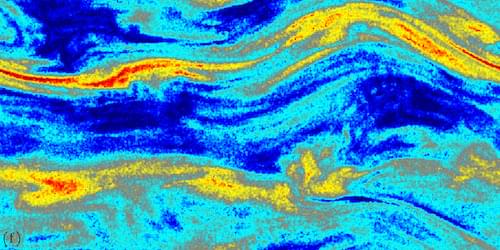New computer simulations show that wave-particle interactions endow thin plasmas with an effective viscosity that regulates their turbulent motions and heating.
Most of the regular matter in the Universe is plasma, an ebullient state characterized by charged particles interacting collectively with electromagnetic fields. When individual particles collide on scales much shorter than those of bulk plasma motions, the latter are described well by a 3D fluid theory: magnetohydrodynamics. That condition prevails in the interiors of stars and planets and in protoplanetary accretion disks. But many hot, low-density astrophysical plasma flows are only weakly collisional. Accounting for stellar winds, accretion around black holes, and the motions of the plasma that pervades intergalactic space requires a statistical kinetic description of the particle positions and velocities in a 6D space. Numerical simulations by Lev Arzamasskiy of the Institute of Advanced Study in Princeton, New Jersey, and his colleagues [1] shed new light on magnetized kinetic turbulence in such plasmas.
